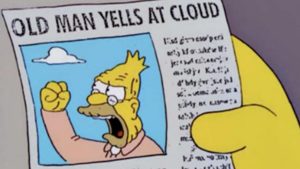 Some time back, I picked up a copy of Thomas Jefferson: Travels, Anthony Brandt’s edited collection of Jefferson’s correspondence from 1784-1789, his years working in Paris. I find the “American Sphinx,” to use Joseph Ellis’ term, endlessly fascinating in all his complexities, obscurities, and patent hypocrisy. In some ways, his is the story of the state of Virginia, even the entire South. Partly my interest stems from Deism, a spiritual path I share with the Founding Father, partly the long shadow cast by my alma mater, The University of Virginia.
Some time back, I picked up a copy of Thomas Jefferson: Travels, Anthony Brandt’s edited collection of Jefferson’s correspondence from 1784-1789, his years working in Paris. I find the “American Sphinx,” to use Joseph Ellis’ term, endlessly fascinating in all his complexities, obscurities, and patent hypocrisy. In some ways, his is the story of the state of Virginia, even the entire South. Partly my interest stems from Deism, a spiritual path I share with the Founding Father, partly the long shadow cast by my alma mater, The University of Virginia.
Jefferson, with his many flaws, lacked one: idleness. That brings us to our word, one he saw as the emotional outcome of doing nothing. Here, in a letter to Martha Jefferson from 1787, “guard you at all times against ennui, the most dangerous poison of life. A mind always employed is alway happy. . . .it is our own fault if we ever know what ennui is. . .” In an earlier letter from the same month, he finds the cause of such poison to be “want of industry which I had begun to fear would be the rock on which you would split.”
Ennui, as befits Jefferson’s experience, come to us from French. In its modern sense, it only dates to 1758, during Jefferson’s own lifetime. Thus, we have a ‘Modern Problem”! On the other hand, The OED dates an older sense to the 13th century, meaning “weariness.” Often the word “annoy” got employed in the same sense.
The modern loan word implies an annoyance or torpor of the soul, a lassitude. it’s that waiting-for-Godot state of mind. I’ve covered the words malaise and doldrum here before. They both can be used as near synonyms for our week’s word.
I fear we turn to dopamine-dispensers called smart phones and social media for quick bandages to slap over ennui, when instead we might find uses for our time that leave us with something tangible. If you experience ennui, get some exercise. Do some useful work. Improve your mind (and yes, you can find such content via a phone). As Jefferson advises Martha, “it is wonderful how much can be done, if we are always doing.”
Spend your time well! Send us a word or metaphor and I will feature it here. Let me know by e-mail (jessid -at- richmond -dot- edu) or by leaving a comment below. Also let us know if you would like to write a guest column.
See all of our Metaphors of the Month here and Words of the Week here.
Image Source: Ennui by Robert Seymour, courtesy of Wikipedia Commons.












